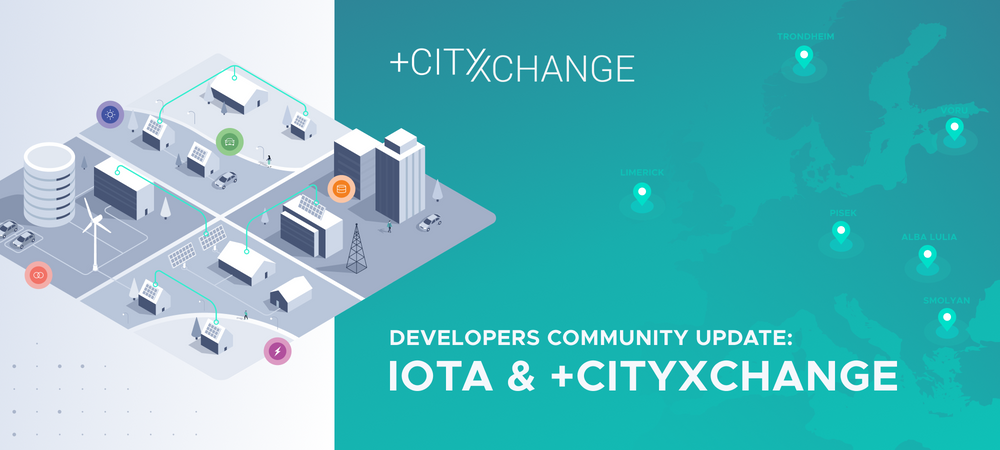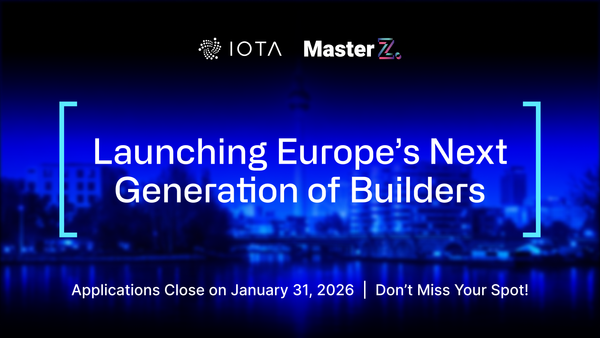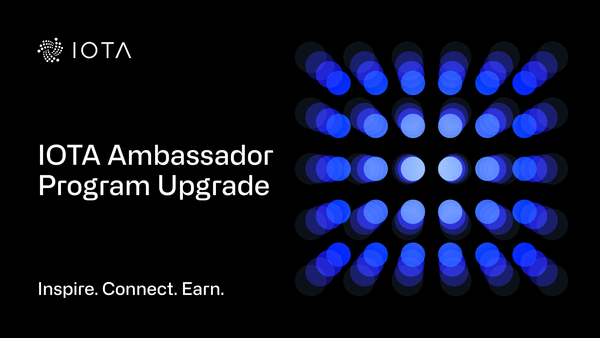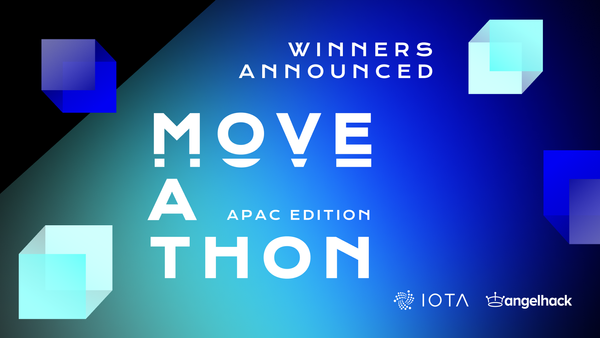Developers Community Update: IOTA and +CityxChange
TL;DR:
The following blog post gives an update on the technical development work that we have been doing in close collaboration with the project partners since the start of the +CityxChange project, and to present a roadmap for the development work expected in the remainder of the project.
On 6 July 2018, the +CityxChange proposal was formally accepted by the European Commission to become a new smart city lighthouse project, under the EU Horizon 2020 Smart Cities and Communities topic. The project was awarded after a thorough review by experts, who gave excellent comments and rated it among the very best of the 11 competing proposals.
An overview of the initial project ambition and a list of the partners involved can be found in our earlier blog post and on the project website.
In a nutshell, over the course of five years, the project aims, to develop, test and facilitate the adoption of technologies that allow the creation, discovery and trading of renewable energies within a city, with the objective to create self-sustainable“positive” energy districts, where all the energy consumed by the district is produced within the district itself. Among other solutions, the project will trial the concept of a decentralized energy trading marketplace, where producers and consumers can trade energy on a peer-to-peer basis.
The +CityxChange project is broken down into multiple work packages, each focusing on a different area of the future energy-positive smart city. Each work package is composed of multiple tasks. IOTA is involved in a total of 12 tasks, ranging from standard project management activities, development and planning the commercialization and exploitation of new technology.
Here are two of the main areas of work where the IOTA technology is used to develop innovative solutions:
1. Development of community grids and a platform for local trade of energy and flexibility
The energy grid systems in most countries were not designed to deal with today's energy load and distributed energy resources; therefore, they have inherent flaws, including energy loss, grid capacity limits and distributed system responsibilities, to name but a few.
The energy grid systems in most countries were not designed to deal with today's energy load and distributed energy resources.
The IOTA Foundation, along with project partners at Powel (utility analytics), smartpower (smart energy grids) and many other organizations involved in this task, aim to explore how to set up local energy markets and deal with system operation issues to enable positive energy blocks (PEBs) and districts (PEDs).
The idea is to construct new, and upgrade existing buildings, with energy production and transmission capabilities, similar to the ENTRA “Powerhouse” utilized in our recent proof of concept. These energy-positive buildings will be able to trade excess energy directly with one another within the block/district at competitive prices.
The IOTA technology can allow dedicated energy meters to automatically communicate and exchange, first to request and offer energy, and secondly to enable machine-to-machine transfers of energy and payments through aP2P service offer and request paradigm similar to the one explored in the IOTA Industry marketplace, but contextualized to the energy sector, its regulations, standards, and rules.
To allow such peer-to-peer interactions without a third-party intermediary, trust between producers and consumers must be maintained. IOTA's technology helps achieve this trust by ensuring the integrity of any information shared through the involved actors. The IOTA protocol will help streamline the envisioned system, provide multiple benefits to producers and consumers and the overarching energy grid, due to smart use and trade of renewable energy. We have listed some examples of the benefits below, but this list is by no means exhaustive:
- Better management of environmental resources
- Reduce life cycle cost
- Increase asset value
- Increase local air quality
- Enhance neighborhood identity
- Improve health and wellbeing
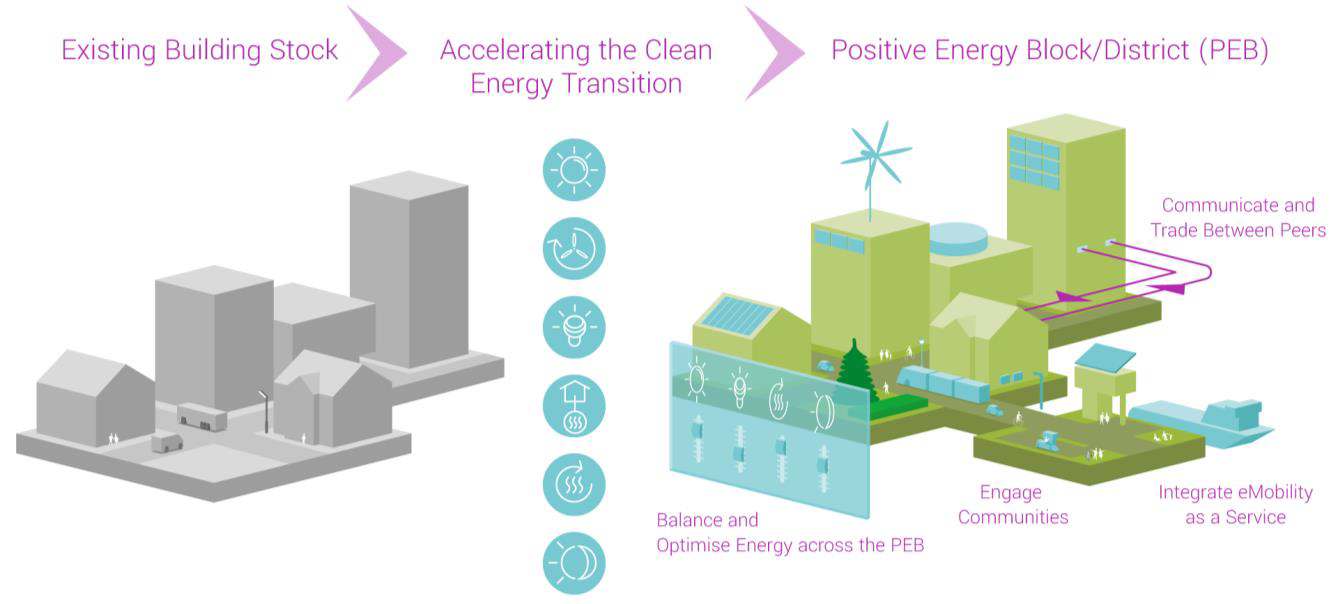
Fig.1 transition from existing building stock to PEB
The final product of this task will be a standardized IOTA-powered platform that will be utilized to trade the energy produced and consumed within these community grids.
The IOTA Foundation has produced an application blueprint for a basic version of this platform; it is available on our documentation portal along with other application blueprints. This blueprint architecture makes use of MAM channels to allow energy producers to communicate their energy production and requested price to energy aggregators. Aggregators receive energy requests from the grid and match to producers based on availability and price. Payments are sent peer-to-peer, with producers and consumers managing their own IOTA address and wallet, while transaction data is immutably stored onto the Tangle (IOTA’s underlying data structure) using deployed chronicle nodes.
2. Delivery of seamless eMobility as a service (emaas)
This task is currently in scope and an initial PoC is being developed by IOTA. Collaborating with FourC, a machine-to-machine/Internet of Things cloud infrastructure company focusing on mobility and leader of this specific task, IOTA is developing an infrastructure that allows users to book and seamlessly pay for multimodal journeys involving multiple transport providers. Developed with FourC, the platform will allow users to identify the best possible transport options, based on their mobility needs, including a combination of transport modes and a number of search criteria. Search criteria will likely include factors of energy use and greenhouse gas emissions, air quality, congestion, vicinity of charging stations, timing, and cost.
The problem of offering a seamless booking and payment experience for the user is that it requires individual payments to be collected and distributed securely, to different transport providers, with trust, and without extra costs. To solve this challenge, IOTA is building a secure and immutable audit trail for the following data: journey start/endpoint, mode of transport, and cost.
MAM channels will be used to guarantee ownership, privacy and access control of journey and transport data respectively, for users and providers. This single source of truth for different service providers (ebus/ebike/ecar) details who is due what and will allow them to trustfully collect payments through a billing service. In addition, users will be able to pay directly with IOTAs. Integration of a user app with the Trinity wallet will allow users to easily manage their payments and to send micro-transactions directly to the specific vehicle used for transport, thus cutting any delay, intermediary, and supporting a true pay-by-use service. Future versions of Trinity will also allow users to manage their own journey histories, thus guaranteeing full GDPR compliance.
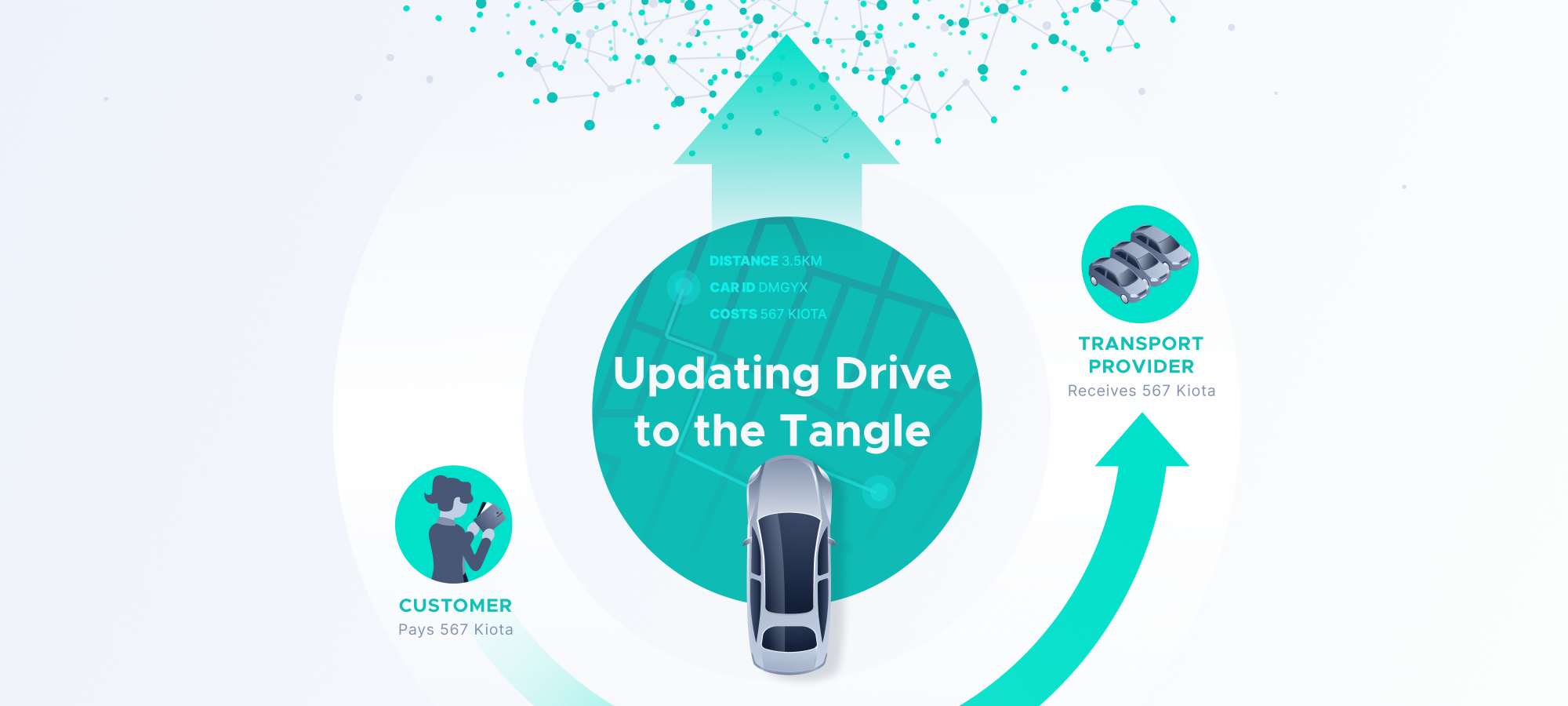
Closing remarks
As with any large collaborative project involving many partners across a number of countries and over a long period of time, progress may seem slow but the cogs are turning and real innovation is happening. IOTA is committed to supporting implementation throughout this project with the aim of demonstrating some of the many benefits the Tangle can offer smart cities.
We are excited to be involved in this project and look forward to what can be achieved in the next four years. The use of IOTA technology in these smart city testbeds is a crucial step for us. Once it is possible to demonstrate, within regulatory sandboxes, what can be achieved in the real world by utilizing the IOTA feeless protocol for machine-to-machine payments and secure data transfer, it is expected that regulation adjustment will follow and that a new era of energy positive smart cities will flourish.
If you are interested and want to know more about the IOTA solutions developed inside the +CityxChange project, check out https://cityxchange.eu/or get in touch with [email protected].
If you are interested in learning about IOTA development or anything else IOTA-related, please join our community on discord https://discord.iota.org/.

